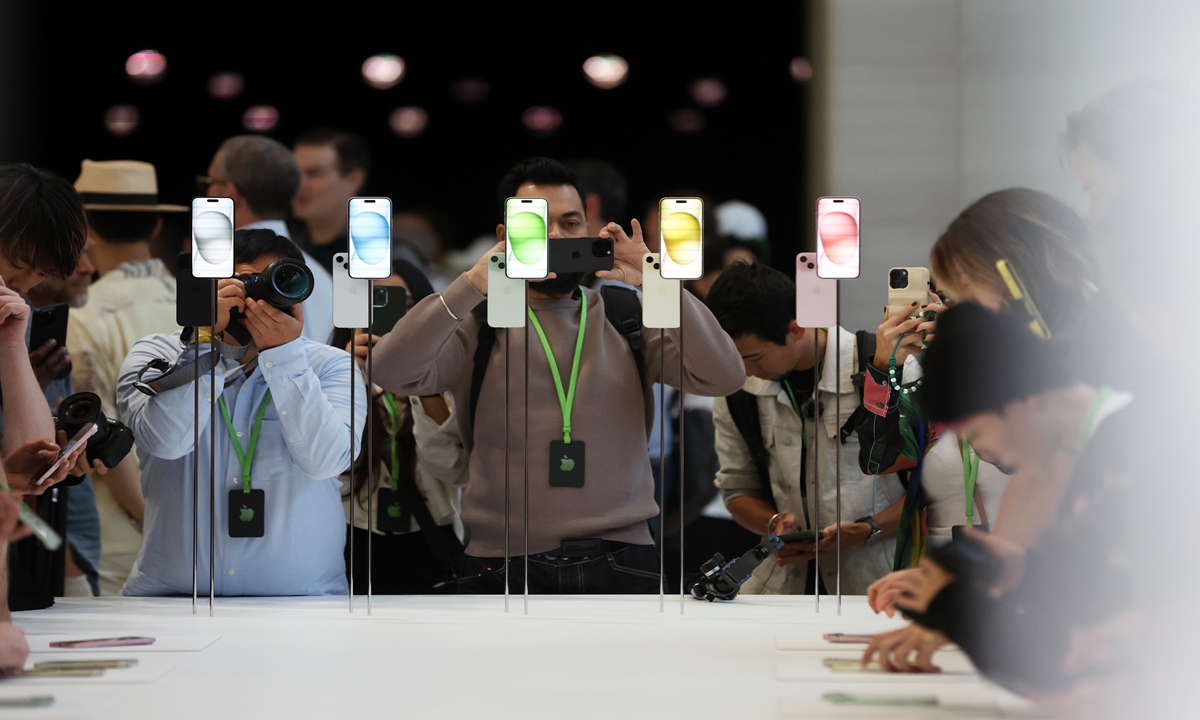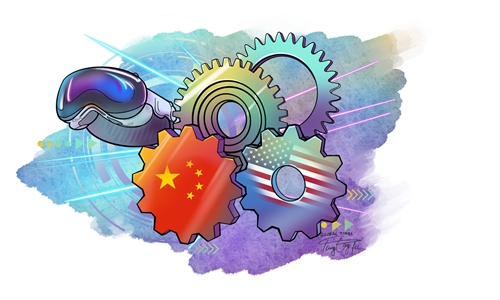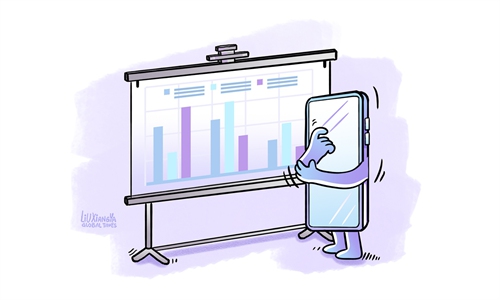
Attendees look at brand new Apple products during an Apple event on September 12, 2023 in Cupertino, California. Photo: VCG
The pressure on Apple to reorganize its products structure and find more and stronger business avenues is on, ever since Microsoft has topped Apple about one month ago to become the most valuable public company in the world. The competition between the two major tech titans is expected to persist in the coming two to three years, if not longer.Now, generative artificial intelligence (AI) is churning the seas and making big waves after OpenAI launched the newest ChatGPT bot "Sora" which is able to make vivid and utterly realistic clips of video streams if fed with descriptive texts. Deemed as the next transformative technology that may be capable to reshape our work and life, AI innovation and development is currently on the top agenda of both Apple and Microsoft.
And on Tuesday, Apple's Chief Operating Officer Jeff Williams affirmed that the company is winding down its decade-old endeavor to build an electric vehicle, abandoning one of the most ambitious projects in the company's history. Many employees working on the EV project reportedly will be shifted to Apple's AI project group. Obviously, AI innovation is a key priority of the company and Apple cannot take it for granted.
AI is presumably the next big thing for the world's corporate giants, as joggling for achieving an AI edge has already started. Microsoft, a major stakeholder of OpenAI, seems to be leading in generative AI development and usage. Microsoft has invested billions of dollars in OpenAI and spent the whole of last year racing to push its AI solutions into every product the company offers, which many watchers claim will enable Microsoft to cash in on what they see as its lead in AI.
Apple does not want to fall behind in AI innovation. Apple CEO Tim Cook told investors earlier this month that it has been working on generative AI and was planning to announce some progress later in 2024. "We've got some things that we're incredibly excited about that we'll be talking about later this year," he said on a call with industry analysts.
The decision to shut down its high-profile EV bid is a bombshell for many, which effectively ended a multibillion-dollar effort named Project Titan which would have vaulted the company into a whole new industry. Apple started working on its EV program about 10 years ago, eyeing on a fully autonomous electric car with voice-guided navigation, but the project stumbled and struggled from the start, causing investors to be increasingly concerned with the eventual birth of a car.
But Apple continues to spend heavily in new technology advances. It spent a total of $113 billion on research and development during the past five years, with an average annual growth rate of 16 percent, one of the highest among major tech companies in the world. For instance, Apple last year launched the popular Vision Pro headset.
But Microsoft has moved from "talking about AI to applying AI at scale," according to its chief executive Satya Nadella. The company's more than $3 trillion market valuation is significantly supported by its lead in AI innovation and its flagship cloud computing product called Azure. In the just concluded quarter ending December, the company netted revenue totaling $62 billion, growing 18 percent from a year earlier. Its profit reached $21.9 billion, up 33 percent. Microsoft's cloud offerings brought in $33.7 billion business, just behind Amazon.
Microsoft vowed to invest tens of billions more in building more data centers for AI and cloud computing. Corporate customers have just started trying Microsoft's Copilot offering, which integrates newest AI tools into its cloud productivity programs including Word, Excel and Teams. The improvements have become widely available at the end of last year and cost about $30 per user per month, which is able to create new streams of revenue for Microsoft.
Years ago, Microsoft trailed in market capitalization as its stock price lacked luster after the company acquired Nokia's mobile phone business, which ultimately failed as it could not compete with smartphone giants like Apple and a slew of Chinese phone makers. But Microsoft again places its focus on software development, cloud computing and AI innovation, which eventually pays off and leads to steadily rising stock prices and becomes a darling at Wall Street.
The author is an editor with the Global Times. bizopinion@globaltimes.com.cn



